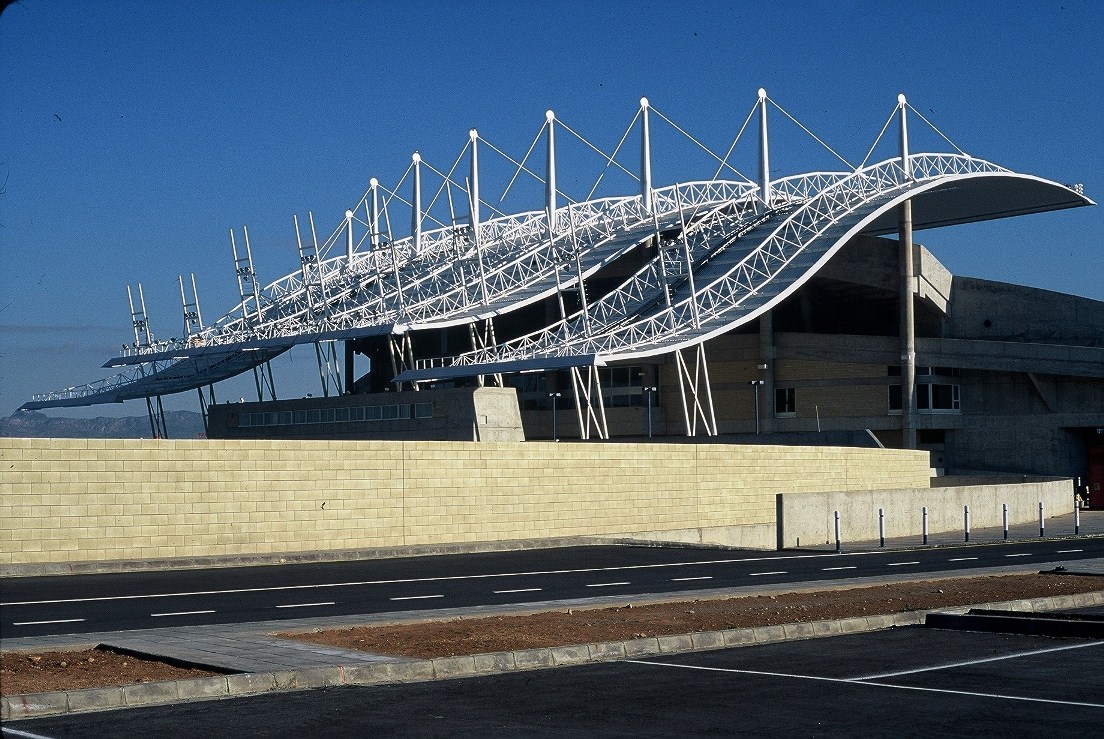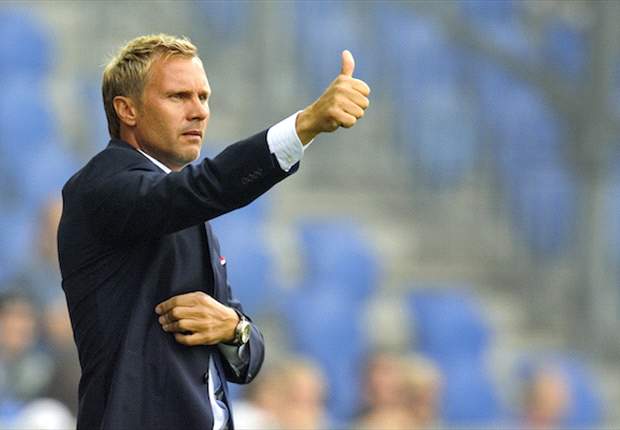Apollon can only blame themselves, but Tratos' performance did little to dispel prejudices
/In previous posts I’ve written how even an out-of-form Morais is still a non-negligible asset for Apoel. Today he only reinforced that notion with the most tangible contribution possible: a goal in the dying moments against a rival.
It wasn’t a game the neutral will have savoured a great deal. Apoel were to initially play behind closed doors, but that was altered so that retirees, women and children could attend the game. The atmosphere was tepid at best.
Apollon don’t traditionally do well against Apoel in Nicosia. Today appeared to be different. After a somewhat lukewarm first few minutes, Apollon grew into the game and began threatening Apoel by what was a predictable initial approach. They patiently stood off in their own half, absorbed whatever pressure Apoel applied and broke off on counter attacks as quickly as they could muster, often through direct balls to Guie, who was positioned primarily in the middle, or Fotis Papoulis and Thuram on the wings.
During that first twenty minute spell, Apoel captain Constantinos Charalambides attempted to push forward down the right wing but often found himself in a dead end. He was obviously given the freedom to roam towards the center, an area where his through balls for Djebbour had the potential to hurt Apollon, but that didn’t work all too well for him today. Similarly, attacking midfielder De Vincenti didn’t find much joy in his final pass despite him having one of the best chances to score. Unfortunately for him his seemingly simple finish met a good block and the ball was subsequently deflected out for a corner. Both of Apoel’s full-backs, Riice and Mario Sergio, also had chances to open the score but in both occasions their powerful shots fizzed over the bar.
It was Apollon who would have the better and more numerous chances to score, however, and Guie would be at the forefront in most of them. Guie is currently one of Apollon’s most in-form players but you would not have guessed it if today’s game was your first one seeing the Ivorian forward play. It was fairly obvious that Apoel’s center back Kaka had clear instructions to stick tight to Guie, hassle him, disrupt his play and most importantly not let him turn towards the goal with any sort of freedom to run into space. It worked for the first 15 minutes or so but then Apollon varied their offensive play a little by not playing the ball to Guie’s feet all the time and either used their two widemen as offensive outlets or played the ball into space for Guie to latch on to. It worked as Guie had an opportunity to score when he was released down the right by Thuram but his shot was blocked away by Pardo. The oncoming Papoulis was quickly closed down but should have done better with the regained possession regardless.
In terms of midfield performances, many expected Rosa to shine, but he was a tad too cautious and unwilling to be more direct with his passes at times. Next to him in the middle, and though he’s been much maligned this season, Camel Meriem had one of his better games for the blues. His passing was generally accurate, he tackled well when he had to (especially in the first half) and did not shy away from bringing the ball out of his own half even when the midfield area was notably congested.
Apoel had a significantly better time in keeping possession in the second half. Apollon sat a bit deeper again and invited pressure with their opponents more than happy to oblige. This spell of domination yielded two decent moments for Apoel, one being an Efrem header (off target) and the other a hard, straight shot by De Vincenti which was saved by Vale.
While Apoel appeared to be in complete control and were poised to become even more threatening in the offensive third, the first of the game’s three most noteworthy events took place. In the 71st minute, Apollon’s Guie was released into space with only the keeper to face but was pulled down by Kaka from behind. It was an unambiguously straight red for the Brazilian center back. Thorsten Fink responded immediately by taking Charalambides off for a replacement center back, Carlao.
Apollon quickly utilized their numerical advantage by playing a bit further up the pitch knowing that Apoel were now both lighter in midfield and cautious when breaking in a counter attack. Only 7 minutes after the red card, the second most critical event materialized. A speculative forward pass was ill-judged by the Apoel center backs causing them to sort of clash onto each other. Papoulis showed good anticipation to follow the ball and was duly rewarded by finding himself free in the box with the ball in possession, unchallenged and with only Urko Pardo to deal with. For some inexplicable reason Leontios Tratos decided to blow the whistle for what I can only guess is an inexistent foul by Papoulis who was a metre away from the nearest Apoel player. Papoulis’ facial expression was that of unadulterated frustration and bewilderment. Many fans speak of how hard it is to get decisions to go your way at GSP. Though exaggeration and delusion are no strangers to the soured football fan walking away from a loss, Tratos did absolutely nothing to dispel any prejudices today.
Apollon continued to threaten Apoel but Guie’s profligacy lingered and would come back to haunt them. The game began to lose momentum in the dying moments, players and fans alike accepting the possibility of a draw, but Apollon’s loss of concentration would make all those missed opportunities a bit more difficult to swallow. After Tiago Gomes came on for the largely ineffective Giorgos Efrem and with mere seconds to go for the added time to meet its minimum amount, Apoel scored. Merkis’ professional foul during an Apoel counter made it seem that Apollon would regroup and see the game out, content with the draw and the subsequent point advantage remaining intact. However, Apoel took the foul quickly, passing to Djebbour down the left. He carried the ball forward and crossed while near the byline with right back Nuno Lopes offering little in terms of defensive cover. The remarkably unmarked Nuno Morais comfortably headed the ball in the net utterly demoralizing the Limassol club.
Ioan Andone will undoubtedly be feeling aggrieved after today. Not only did his team come close to winning away against a fierce rival, but they also showed confidence and initiative. Having said that, the performance counts for little when you lose in such fashion. Apollon need to use today as both a springboard to challenge for the title and as a lesson which should be used in future encounters.
The game is not over until the final whistle is blown; Apoel are evidently adequately aware of this. The referee’s sizable blunder earlier in the game may provide some semblance of moral superiority, but that does not affect the scoreboard in any way. Kolokoudias was Andone’s only introduction today but he offered little going forward. Perhaps the Romanian manager didn’t make any other changes so as to not disrupt his team, but in hindsight he could have altered things a little after the red card to solidify his team’s superiority by flooding the midfield or by bringing on some fresh legs. It was jokingly said that Sangoy’s lengthy ban would only help the team play better. After today I’m not quite as certain that is a valid notion. Apollon are a bit more functional, and Sangoy does tend to fade in certain games, but his attacking contribution was sorely missed in a game such as this one. If Apollon are serious about their title challenge they must bow down to the inescapable necessity of being ferociously decisive in front of goal.
Kyriacos Nicolaou












